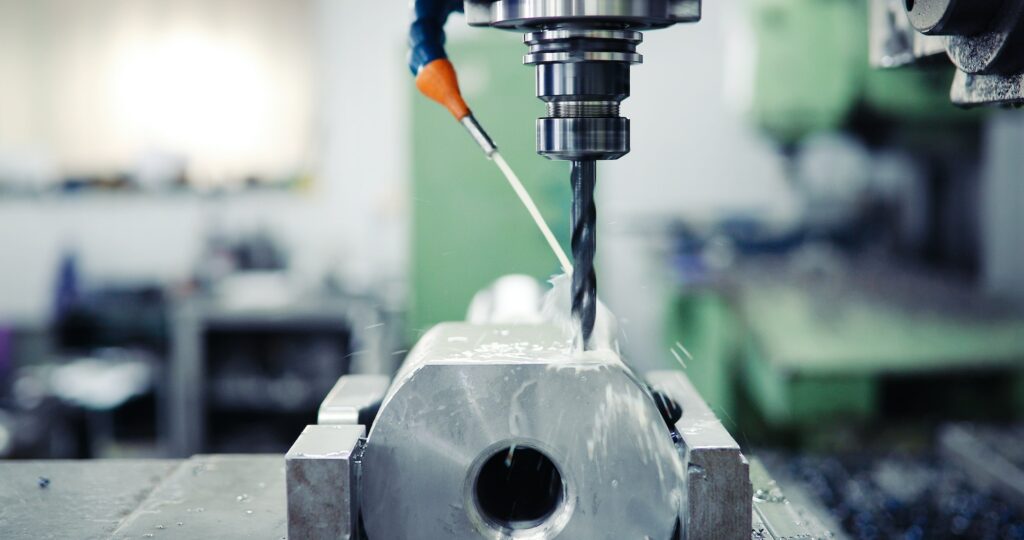
How CNC Machining Revolutionizes the Tool and Die Manufacturing Industry
In today’s ever-evolving manufacturing landscape, technological advancements have played a crucial role in enhancing efficiency, accuracy, and productivity across various industries. One such technology that has revolutionized the tool and die manufacturing industry is CNC (Computer Numerical Control) machining. By automating the machining process, CNC machining has brought significant improvements, transforming the way tool and die manufacturers operate.
The Power of CNC Machining in Tool and Die Manufacturing
CNC machining has reshaped the tool and die manufacturing industry by offering numerous benefits that traditional manufacturing processes cannot match. Let’s explore some of these advantages and understand the impact of CNC machining on the tool and die manufacturing sector.
Precision and Accuracy
In tool and die manufacturing, precision is of paramount importance. CNC machining excels in delivering precise and accurate results consistently. Through computerized controls, CNC machines can achieve intricate shapes, tight tolerances, and complex geometries with remarkable precision. This level of accuracy ensures that tool and die parts are manufactured to the highest standards, resulting in enhanced performance and durability.
Efficiency and Productivity
Gone are the days of manual labor-intensive processes in tool and die manufacturing. CNC machining has significantly increased efficiency and productivity in the industry. With the ability to automate various machining operations, CNC machines can work round the clock, minimizing downtime and maximizing output. The elimination of human error and the consistent quality achieved through CNC machining also contribute to increased productivity.
Customization and Flexibility
Tool and die manufacturers often encounter unique requirements from their clients. CNC machining allows for greater customization and flexibility in meeting these specific needs. With the ability to program CNC machines to create intricate designs and complex shapes, manufacturers can produce highly tailored tool and die parts. This flexibility enables them to cater to diverse industries, such as automotive, aerospace, and electronics, with ease.
Speed and Time-to-Market
In a competitive manufacturing environment, speed is a crucial factor in gaining a competitive edge. CNC machining enables faster production cycles, reducing lead times and improving time-to-market for tool and die manufacturers. The automation and precision offered by CNC machines allow for rapid prototyping and iterative design improvements, enabling manufacturers to bring new products to market quickly.
Cost-Effectiveness
CNC machining offers significant cost advantages for tool and die manufacturers. While the initial investment in CNC machines may seem substantial, the long-term benefits outweigh the costs. CNC machines can operate with minimal supervision, reducing labor costs. Moreover, the elimination of errors and rework lowers material wastage, resulting in cost savings. Additionally, the increased productivity and efficiency of CNC machining lead to higher production volumes, driving economies of scale and further reducing unit costs.
Integration with Advanced Technologies
CNC machining seamlessly integrates with advanced technologies, propelling the tool and die manufacturing industry forward. For example, the use of CAD/CAM software in conjunction with CNC machines allows for seamless design transfer and precise machining. Additionally, emerging technologies like additive manufacturing (3D printing) can be combined with CNC machining to create intricate tool and die parts with complex internal structures, expanding the possibilities for innovation.
Looking Ahead: The Future of CNC Machining in Tool and Die Manufacturing
As technology continues to advance, the future of CNC machining in the tool and die manufacturing industry looks promising. Industry experts predict further integration of automation, robotics, and artificial intelligence (AI) into CNC machining processes. This integration will enhance productivity, improve predictive maintenance, and optimize material usage, making tool and die manufacturing even more efficient and sustainable.
Conclusion
CNC machining has undoubtedly made a profound impact on the tool and die manufacturing industry. Through precision, efficiency, customization, and cost-effectiveness, CNC machining has transformed the way tool and die manufacturers operate. By embracing this technology, manufacturers can stay ahead of the competition, deliver high-quality products, and meet the evolving demands of their clients. As we move forward, the synergy between CNC machining and advanced technologies promises to unlock even greater potential, driving innovation and shaping the future of tool and die manufacturing.


